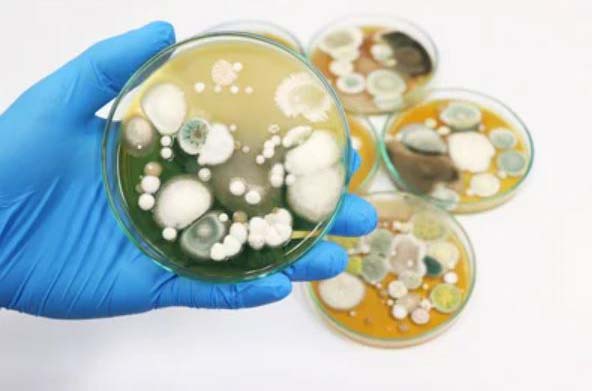0
s
of Jobs
Completed
5 Star Customer Rating
Get A Free Quote:
“Lab” or Laboratory Waste is a specimen or culture discarded in the course of dental, medical or veterinary practice or research.
This includes wastes contaminated by genetically manipulated material or imported biological material.
Laboratory waste also includes cultures and stocks of infectious agents and associated biologicals, cultures and stocks from medical, research or pathological laboratories, wastes from the production of biologicals, discarded live or attenuated vaccines or culture dishes, and devices used to transfer, inoculate or mix cultures.

Ensure laboratory safety with our professional lab waste disposal services.
100% Satisfication Gaurented Service
Safely manage and dispose of all types of laboratory waste, including chemical, biological, and radioactive materials. Our services help you maintain compliance and ensure a safe working environment.
5 Star Customer Rating
“Know More Waste has the experience to dispose of your waste quickly and efficiently, all while saving you money.”


“We had a lot of hazardous waste that we needed to dispose of. Daniel and his team were professional and punctual, gave us a great price, and helped to relieve a very stressful situation. Would highly recommend."





Cultures and stocks refer to systems that are used to grow and maintain infectious agents in vitro.
Culture dishes and devices used to transfer, inoculate or mix cultures refers to items that have come into contact with high concentrations of infectious agents and may include:
Aswell as other materials used to clean and disinfect items.


We specialise in Universities and School laboratory waste collection and disposal service.
Whether you generate enough chemicals for one Lab pack per year or have
multiple laboratories / locations in need of regular service.
Considering a Lab pack may be the solution for you.
A lab waste disposal service is a specialised service that manages the safe and compliant disposal of waste generated in laboratories. These services handle a wide range of laboratory waste, including chemical, biological, and radioactive materials, as well as contaminated equipment and glassware. The service typically involves the collection, transportation, treatment, and final disposal of the waste, ensuring that all materials are handled according to strict environmental and safety regulations. By utilising a lab waste disposal service, laboratories can mitigate the risks associated with hazardous waste and ensure compliance with local, state, and national laws.
The disposal of laboratory waste depends on the type of waste being handled. Chemical waste should be segregated according to its hazard classification and stored in appropriate containers that are clearly labelled. Biological waste, such as contaminated specimens or materials, must be sterilised, usually through autoclaving, before disposal in biohazard bags or containers. Radioactive waste requires specialised containment and disposal methods, typically managed by authorised facilities. Solid waste, such as broken glassware, should be placed in designated sharps or glass disposal containers. All laboratory waste must be disposed of in accordance with regulatory guidelines to ensure safety and environmental protection.
Polychlorinated biphenyls (PCBs) are hazardous chemicals that require careful disposal due to their toxicity and environmental persistence. PCB lab waste should be collected in leak-proof containers that are clearly labelled with the contents and the concentration of PCBs. These containers must be stored in a secure area until they can be transported to a licensed hazardous waste disposal facility. The disposal process typically involves incineration at high temperatures in specialised facilities that can completely destroy the PCBs, preventing their release into the environment. It is essential to follow local and national regulations for PCB disposal to avoid contamination and legal penalties.
Handling chemical waste in a laboratory involves several important steps to ensure safety and compliance with regulations. First, chemical waste should be segregated based on its hazard class—such as flammable, corrosive, toxic, or reactive—and stored in compatible, clearly labelled containers. Containers should be kept sealed when not in use and stored in a designated chemical waste area within the laboratory. It's crucial to maintain an accurate inventory of chemical waste and to regularly remove waste from the lab for proper disposal. All laboratory personnel should be trained in chemical waste handling procedures, including spill response and emergency protocols. When disposing of chemical waste, it should be done through a licensed waste disposal service that can treat and dispose of the waste safely.
Disposal of laboratory waste products requires careful consideration of the type and hazard level of the waste. Chemical waste should be collected in appropriate containers and labelled according to its hazard classification. Biological waste, such as used cultures or contaminated materials, must be sterilised, typically by autoclaving, before disposal in biohazard containers. Sharps, broken glass, and other solid waste should be placed in designated sharps containers. Radioactive waste requires special handling and disposal procedures, often involving containment and disposal by authorised facilities. All laboratory waste must be disposed of in compliance with local and national regulations to ensure safety and environmental protection.
Clinical waste refers to waste generated from healthcare activities that may pose a risk of infection, contamination, or injury. This includes materials such as used bandages, gloves, syringes, and other items contaminated with blood or bodily fluids. Clinical waste often requires special handling, treatment, and disposal, typically through incineration or autoclaving, to prevent the spread of infection and ensure environmental safety. Non-clinical waste, on the other hand, is waste that does not pose the same risks and includes items such as office paper, food waste, and general refuse from healthcare facilities. While non-clinical waste can often be disposed of through regular waste management systems, clinical waste must be managed according to strict regulations to protect public health.
